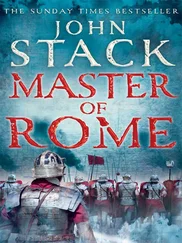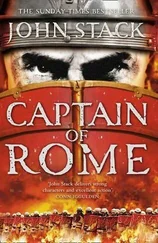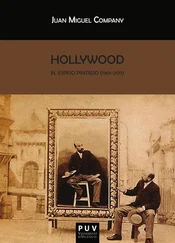Atticus felt a tug on his arm and he dragged his attention away from the seemingly chaotic scene to answer the summons. Septimus nodded his head to the left, indicating the sudden change in course of the mounted party, and Atticus wheeled his horse to follow the others as they turned away from the docks and headed into the port town. Here, as before, the streets were crammed with all manner of goods, this time on the move inland towards the city over twelve miles away. The horsemen wove their way around the multitude of slaves and bearers, slowing their progress until they emerged beyond the confines of the town into the open countryside. Within half a dozen miles they reached Via Aurelia, the recently constructed road that ran northwards along the coastline from Rome. They turned south and within ten minutes were crossing the Tiber over the Pons Aemilius, a magnificent stonepillared bridge with a wooden superstructure of five arches effortlessly spanning the one-hundred-yard-wide stretch of water. Atticus could only marvel at the engineering feat beneath him and he leaned out of his saddle to peer over the thirty-foot drop to the fast-flowing waters below.
‘You haven’t seen anything yet,’ Septimus smiled as he noticed his friend’s eyes take in every detail of the bridge. Atticus looked up and Septimus nodded his head to the road before them, to the sight that was opening before them: Rome.
The horsemen entered the city through Porta Flumentana, one of twelve gates in the Servian Wall, which ran nearly seven miles around the entire city. Built by the sixth king of Rome, the wall was twelve feet thick and twenty high, a mammoth defensive barrier built as a reaction to the sacking of the city over one hundred and thirty years before by the seventy-thousand-strong Gaulish army of Brennus. As the group passed under the great arch of the gate, inscribed with the omnipresent SPQR denoting Senatus Populusque Romanus , ‘the Senate and the People of Rome’, Atticus’s eyes were drawn upwards to the height of the Palatine Hill, soaring two hundred feet above the level of the valley floor, upon which the foundation stones of Rome had been laid nearly five hundred years before by the demigod Romulus.
The group wound its way through the bustling streets, swinging north of the Palatine Hill into the valley formed with the Capitoline Hill, itself dominated by the Capitolium Temple dedicated to the three supreme deities, Jupiter, Mars and Quirinus. Atticus had never seen such a multitude of people before. Having spent his whole adult life at sea, he had quickly become accustomed to living in close proximity with others, the limited space of a floating galley isolated at sea creating a claustrophobic and intrusive atmosphere on board. In comparison to the press of the streets and buildings surrounding him, however, the galley seemed capacious. The insulae , the apartment blocks on all sides of the narrow streets, rose five or more storeys high, with balconies reaching out to form a near roof that robbed the street of much of its daylight. Atticus felt an undeniable sensation of oppression in the enclosed corridor, and he inwardly sighed in relief as he noticed an end to the street ahead, a brighter, more open space beyond.
Atticus was the trailing member of the group and so was the last to breach the confines of the narrow street out into the Forum Magnum, the central plaza of the sprawling city. His heart soared as he gazed upon the imperial heart of the Republic. When Atticus was young, his grandfather had regaled him with stories of the great city of Athens, a city his ancestors had called home before the Milonius clan fled before Alexander of Macedon and settled in southern Italia. The tales told of soaring temples and godlike statues, of civilization’s birthplace and home, a city that only the Greeks in their power could create. As a child, Atticus had let his imagination fashion a city of incredible presence, a vision he had often dismissed in his adult years, the boasts of an old man longing for his homeland. Now, standing on the cusp of the magnificent Forum Magnum, Atticus was presented with the very visions of his youth transplanted to another city, a city that surely exceeded all others in splendour and power.
Septimus reined in his horse and brought himself back alongside his open-mouthed friend.
‘Well?’ Septimus asked. ‘What do you think?’ he added with a smile.
‘By the gods, Septimus, I never believed it would be so…so…’
‘Big?’ the marine offered.
‘I was going to say amazing,’ Atticus replied, instantly understanding how the city before him could be the focal point for the power it held over the whole peninsula.
‘My father’s father spat on the name of Rome when the legions came to Locri, believing them and the city that bore their citizenship to be inferior to any in Greece,’ Atticus continued, shaking his head in silent criticism of the belief his grandfather had held.
Septimus began to name the sights of the Forum as they passed through the expansive and busy commercial and governmental centre. To their left was the Temple of Vesta, a towering circular shrine dedicated to the virgin goddess of home and family. Within, Septimus explained, the untouchable Vestal Virgins tended the eternal flame of Vesta, a symbol of the very source of life, the flame connected through the eastern opening of the temple to the ultimate source, the sun. The Virgins, once the daughters of the king of Rome, were now the daughters of the most important Roman families, and their thirty-year vow of chastity and acceptance into the only order of priestesses in Roman religion brought them and their families great honour and prestige.
Standing next to the temple was the Regia. Originally it had served as the centre for the kings of Rome, but now, with power residing in the Senate, the building was home to a spiritually more impressive figure, the pontifex maximus , the high priest of the Republic. The imposing rectangular temple housed the shield and lance of the war god, Mars, and it was with these symbols that the high priest administered the divine laws of Rome and kept the ‘Peace of the Gods’. Atticus listened in silent awe as Septimus explained that the lance held within the walls of the temple would vibrate in perilous times, a warning sign to the populace from Mars himself that Rome was under threat.
The two men swung their mounts left in pursuit of the senior consul as the group passed diagonally across the Forum. They passed the Umbilicus Urbi, the official centre of the city from which all distances, both within the city and the entire Republic, were measured. It was an isolated, unassuming marble obelisk, six feet high and five in diameter, and yet Atticus sensed the very fact that it was so humble, in such exalted surroundings, merely added to its significance as the marker point of the centre of the known world.
Septimus pointed out their destination in the northwest corner of the Forum, the Curia Hostilia, the court where the Senate met and the centre of all political activity in the Republic. The building was elevated above the level of the surrounding buildings, its striking façade dominating the northern end of the Forum, a symbol of strength and order. Atticus took his eyes off the impressive sight to look at the senior consul leading them, expecting the order to halt and dismount to come at any moment before they took the final steps of their journey up to the columned entrance of the Curia.
Scipio surreptitiously eyed the steps of the Curia as they approached the Senate building. His own house was a mere half-mile beyond the Forum, around the northern side of the Capitoline Hill that rose up on their left, and it was this destination that the consul now steered towards. As senators on the steps of the Curia recognized him, many of the junior members ran down to question his sudden appearance, while others – men Scipio knew were allied to his enemies – ran up to the entrance to warn those adversaries of the senior consul’s presence. As his horse drew parallel to the foot of the steps, he was surrounded by half a dozen men, each wearing the standard woollen toga of the Senate, although all could afford much finer cloth.
Читать дальше
Конец ознакомительного отрывка
Купить книгу











